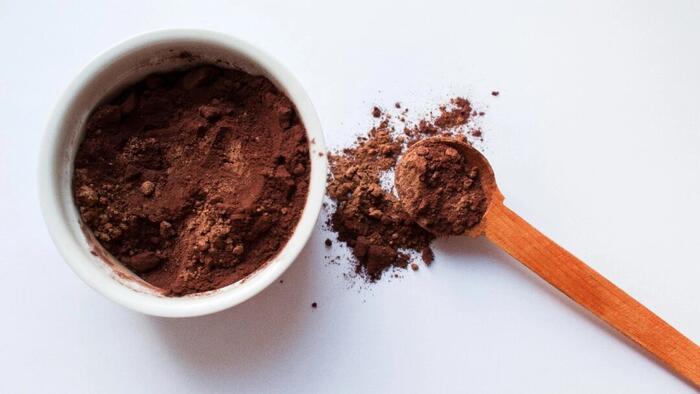


Authored by Rachel Ann T. Melegrito via The Epoch Times (emphasis ours),
Your daily hot cocoa might do more than warm you up - it could also prevent heart disease and the inflammation that drives it, according to a recent study.
As we get older, our bodies become more inflamed, increasing our risks of developing chronic disease and dying.
A large-scale study tracked people who took daily cocoa supplements for two years and found that body-wide inflammation stayed steady instead of rising - with the strongest effects in those who had higher inflammation at baseline.
In the COcoa Supplement and Multivitamin Outcomes Study (COSMOS) trial, daily cocoa extract supplements were linked to a 27 percent lower risk of death from cardiovascular disease.
Taking cocoa extract supplementation lowered C-reactive protein, a key marker of body-wide inflammation, by 70 percent after two years.
That drop corresponds to an estimated 7 percent to 23 percent lower risk of cardiovascular events, shifting participants from the “average-risk” range into the low-risk range for heart disease, while the placebo group remained in the average-risk category.
The study focused on C-reactive protein, or CRP, which typically rises about 5 percent annually with age and is widely used as a marker of body-wide inflammation. This process, dubbed “inflammaging” by researchers, fuels chronic diseases, frailty, disability, and premature death.
While the placebo group’s CRP levels rose by about 5 percent per year, the cocoa group’s dipped by about 3 percent—a change that wasn’t significant on its own. However, when the two groups were compared across two years, cocoa significantly prevented the usual age-related inflammaging, keeping inflammation steady. These results came from a standardized 500-milligram cocoa flavanol supplement (including 80 milligrams epicatechin).
The findings suggest that cocoa may help protect the heart by lowering inflammation, a key driver of cardiovascular disease, Howard Sesso, associate professor of medicine at Brigham and Women’s Hospital and lead author of the study, told The Epoch Times.
The cocoa group also showed a small but significant rise in IFN-γ. This messenger has potential antiviral effects, which may indicate protective effects, though its effect on health is still unclear and requires more study.
These results come from the COSMOS-Blood substudy, which followed nearly 600 generally healthy older adults (average age 70) with no history of cardiovascular disease or cancer through repeated blood tests over two years.
Cocoa extract appears to blunt inflammaging by lowering CRP.
Cocoa is naturally rich in flavanols, which counter inflammation at the molecular level. They turn down a key switch that tells cells to make pro-inflammatory molecules like CRP. They also boost nitric oxide production, which relaxes blood vessels, lowers oxidative stress, and helps calm inflammation in the vessel walls.
In the heart, flavanols help lower blood pressure, keep blood flowing smoothly, and lower the risk of stroke and atherosclerosis by keeping blood vessels flexible and platelets less “sticky.”
A review of clinical trials found that cocoa or dark chocolate can boost nitric oxide levels and lower oxidative stress. The effects were strongest with higher flavanol doses, over 450 milligrams per day.
Not all cocoa products are created equal, Sesso said, noting that most cocoa products lose flavanols during processing and labels don’t list their content.
Melissa Mitri, a registered dietitian-nutritionist and owner of Melissa Mitri Nutrition, agreed, noting that the study used a specific, standardized dose of 500 milligrams of cocoa extract. “The amount of cocoa flavanols present in food forms, like dark chocolate, can vary significantly and may not always contain the amount shown to provide anti-inflammatory benefits in the research,” Mitri told The Epoch Times.
“Cocoa powder may be a better option,” Sesso added. “But this does not mean we should all turn to supplements. Instead, it is important to focus on flavanol-rich foods that include cocoa, berries, tea, grapes, and other plant-based foods.”
Experts say natural is better. “The real benefits come from cocoa, so the darker the chocolate, the better. Aim for 70 percent cocoa or higher,” Kara Siedman, a nutritionist and director of partnerships with resbiotic Nutrition, told The Epoch Times.
Siedman noted that chocolate is calorie-dense and easy to overdo. She recommended just a square or two after dinner, savored slowly, or using unsweetened cocoa powder in smoothies, oatmeal, or yogurt to get flavanols without added sugar and fat.
The most effective approach combines cocoa with other proven strategies like regular exercise and healthy eating patterns, such as the Mediterranean diet and omega-3s. “What matters most is consistency—the foods and habits you follow most of the time.”
